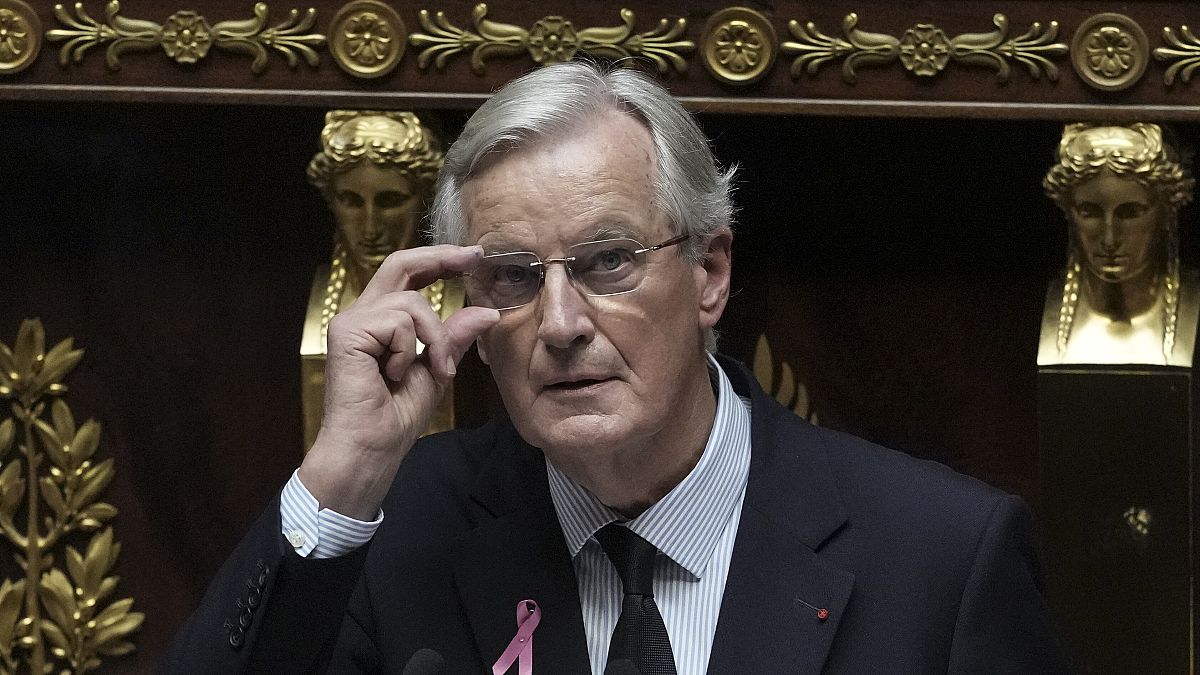Last week, Italy formally opened two return hub centres in Albania under Rome’s jurisdiction, where it plans to process thousands of asylum-seekers outside its borders. But the plan has proved controversial, especially among human rights campaigners.
France’s Prime Minister Michel Barnier has said he doesn’t think the deal Italy has made with Albania to send asylum seekers there for processing will work in France.
“I don’t think this example can be transposed (to France),” Barnier told reporters in Menton, a French town near the border with Italy.
Barnier also said that the Albania deal wouldn’t work in France because of legal reasons.
Last week, Italy formally opened two return hub centres in Albania under Rome’s jurisdiction, where it plans to process thousands of asylum-seekers outside its borders.
Only adult men would be housed in the centres, while vulnerable people such as women, children, the elderly and those who are ill or victims of torture will be accommodated in Italy, according to Rome. Families will not be separated.
The first centre, an area in Shengjin, 66 kilometres northwest of the capital, Tirana, is used for screening newcomers, while the other centre, about 22 kilometres to its east near the former military airport in Gjader, accommodates migrants during the processing of their asylum requests.
Up to 3,000 migrants picked up by the Italian coast guard in international waters each month will be sheltered in Albania under a five-year deal signed last November by Italian Prime Minister Giorgia Meloni and her Albanian counterpart, Edi Rama.
The controversial agreement to outsource the housing of asylum seekers to a non-EU member country has been hailed by some countries that, like Italy, are suffering a heavy burden of refugees, but it has also been slammed by human rights groups as setting a dangerous precedent.
Court ruling
And the plan was dealt a further blow on Friday after a court in Rome ruled that 16 migrants who had been sent to Albania earlier this week had the right to be brought back to Italy.
Italy’s Prime Minister Giorgia Meloni slammed that ruling while speaking to reporters in the Lebanese capital Beirut.
“The issue is much broader because, in essence, what the judges say is that there are no safe countries. So I officially announce that the problem does not exist in Albania. The problem is that no one can ever be repatriated again. The problem is that you can’t push people away. The problem is that you cannot do any policy to defend your borders and so I hope that they will also tell me how to solve it,” she said.
Barnier was in Menton to meet Italy’s Foreign Minister Antonio Tajani to discuss border control and illegal immigration.
“Everything Italy is doing to control the flow of illegal immigration, everything that we ourselves are doing in the same spirit, or that we are going to do ourselves, we are doing for ourselves and together, more effectively than each at home or each for himself. And we are also doing it for the European Union,” Barnier said.
After that meeting, in a post on X Barnier said that both countries had agreed to set up a special “brigade” to clamp down on migrant trafficking over the Franco-Italian border.
“We are very happy with the Franco-Italian relationship at this time, with the Barnier government and we are strengthening these ties in the field of immigration,” added Tajani.
After calling snap legislative elections in June, French President Emmanuel Macron appointed Barnier, a veteran conservative from The Republicans party, hoping the Brexit negotiator would work with the divided legislature to end the political turmoil that has upended French politics in recent months.
The Barnier government, which is dominated by conservatives and centrists, does not have a majority in parliament and efforts to pass any new legislation are bound to be fought and potentially blocked.
The National Assembly is now split between three major political blocs: the left-wing New Popular Front leftist coalition, Macron’s centrist allies and the far-right National Rally, the largest single party in the new assembly.
Hot topic
Irregular migration is currently a hot topic for the European Union and dominated the agenda at a Brussels summit earlier this week.
The conversation has significantly hardened since the bloc completed in May a comprehensive overhaul of its asylum rulebook, capping off almost four years of arduous negotiations that critics believed would never succeed.
Despite the milestone, which Brussels hailed as “historic,” a growing number of governments have come forward demanding more action to stop irregular border crossings and curb asylum claims, which reached 1,129,000 last year.
The debate has turned to “innovative solutions,” with a heavy focus on deportations.
For years, the EU has struggled to send back asylum seekers whose applications for international protection have been denied.
The complex landscape has left the bloc with a sluggish rate for successful deportations, between 20% and 30%, a number that capitals desperately want to ramp up.
One idea that has gone from niche to mainstream is the establishment of so-called “return hubs” outside EU territory.
Under the untested plan, countries would transfer migrants whose asylum applications have been denied to these external centres and make them wait there until the deportation process is completed.

